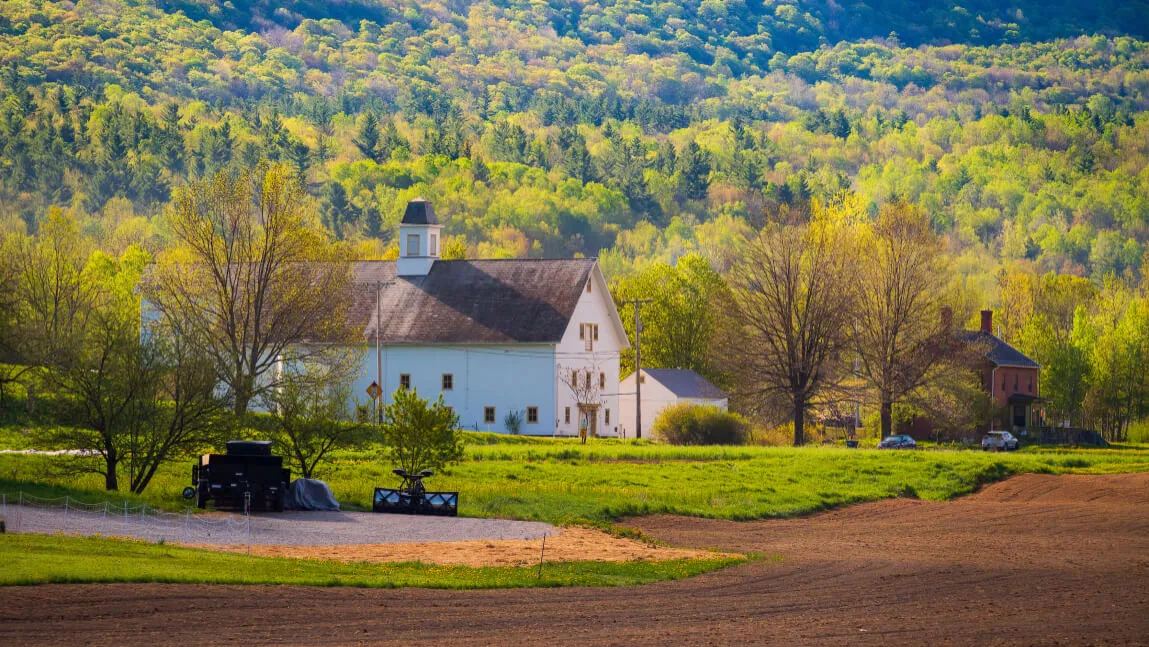Vermont organizations representing a broad spectrum of diverse interests including community school building, clean energy, flood resilience, regenerative agriculture and health care access will be lifted by a wave of support this spring when the first round of grant funding is administered by the University of Vermont’s Leahy Institute for Rural Partnerships (LIRP).
LIRP officials announced today that the institute has issued grants totaling over $1.7 million in funding to more than a dozen deserving projects around the state.
“Grant funding through the Leahy Institute for Rural Partnerships is a shining new example of the potential for innovation in UVM’s land-grant mission of service to Vermont,” said UVM President Suresh Garimella. “These grants will connect our faculty experts and students to groups with ideas for transformative projects that will make a direct impact for communities throughout Vermont. These collaborations deepen and reinforce the bond between the success of our state and the success of our university."
The Leahy Institute for Rural Partnerships, officially launched late last year, is funded through a multi-year award from the USDA’s National Institute for Food and Agriculture (NIFA). The Institute directs these funds to supporting partnerships between UVM and Vermont organizations that are engaged in vital community and economic development work.
“Instead of imposing top-down solutions, we want to collaborate with entrepreneurs and problem-solvers on the ground who have the best shot at making an impact,” said Patricia Coates, director of the Leahy Institute for Rural Partnerships. “We are piloting engagement in new ways in new parts of the state and bringing together multiple partners, on campus and off, to solve important challenges.”
The institute is named for retired U.S. Senator Patrick Leahy, whose 48-year career reflected a strong commitment to Vermont communities. He is now a President’s Distinguished Fellow at UVM.
“When I retired, I wanted to build an organization that could address the challenges faced by people living in our rural communities,” Leahy said. “The Institute positions the university to be a leader in addressing rural challenges—not only within Vermont, but the nation.”
The Leahy Institute for Rural Partnerships, operating alongside the university’s Office of Engagement (OoE), is motivated by the joint vision of a Vermont where all communities can thrive. The Institute and OoE achieve this vision by fostering collaboration between community partners and entities at UVM. Over the past year these organizations provided economic development data reports to over 50 community partners, including all of Vermont’s regional development corporations and regional planning commissions. In collaboration with the Vermont Student Assistance Corporation, OoE administered $5,000 each in loan forgiveness to 169 graduating seniors from Vermont colleges and universities who had landed a Vermont-based job and were planning to stay in the state.
The institute fielded a total of 140 grant proposals for this year’s round of funding. Proposals were considered for capacity grants—an “entry level” track that catalyzes project development with UVM support, or seed grants—which fund research projects, engagement initiatives, and business plan development for early-stage start-ups and non-profits.
“We had an extraordinary response when we announced this grant program late last year,” said Coates. “With the help of our Institute board of advisors we selected 13 projects we believe will move the needle on some key challenges facing our communities.”
Some of the projects include:
- The Whey Forward: Recapturing Nutrients from Dairy Production Waste. Diverting waste from Vermont waterways and soils, recapturing it, and transforming it into nutritious food products through a process called valorization. (Burlington Bio, $200,000).
- Vermont Wastewater Infrastructure Mapping. Systematic mapping of available wastewater infrastructure data on a town-by-town basis for the state of Vermont. (Windham Regional Commission & Town of Jericho, $137,350).
- Migrant Health Initiative. Strengthen the Community Health Worker program to address health inequities among the growing number of non-agricultural Spanish speaking migrant and immigrant households moving into Vermont’s rural communities. (UVM Extension, $200,000)
- System Optimization and LiDAR for Vermont Energy Resilience (SOLVER). Accelerate moving Vermont to a future in which the state’s electrical grid is more resilient and equitable (VELCO, $269,481)
- Enhancing the Little River. Establishing a pilot project to mobilize a statewide campaign to kill off knotweed and replenish Vermont waterbodies with healthy, native vegetation. (Town of Stowe Electric Department, $10,000)
Under terms of the grants, UVM faculty experts and students will work with partner organizations through student internships and service-learning experiences. Coates believes collaboration between local stakeholders and the university will result in lasting relationships that will build long-term capacity.
Chris Campany, executive director of the Windham Regional Commission, will use Leahy Institute funding to complete an assessment of wastewater infrastructure across the state. The grant will help improve the state’s preparedness for flood events.
“Community wastewater systems are a big factor in determining what can be built where. This funding gives us the opportunity to interpret what’s possible in our villages where systems do not exist. We want to ensure future construction projects grow away from areas that flood, and what the presence or absence of systems means for business development.”
The Institute plans a second round of funding for additional projects next fall. See complete list of recipients at https://go.uvm.edu/grants.
About the Institute: The Leahy Institute for Rural Partnerships at the University of Vermont creates partnerships with local organizations that expand opportunities for economic growth and improve the quality of life in rural communities. The Institute is made possible by a $14 million award from the U.S. Department of Agriculture’s National Institute of Food and Agriculture (NIFA), with leadership and support from retired U.S. Sen. Patrick Leahy, D-Vt. Research collaboration will also take place with Institute for Rural Partnership consortium partners Auburn University, and the University of Wisconsin.
